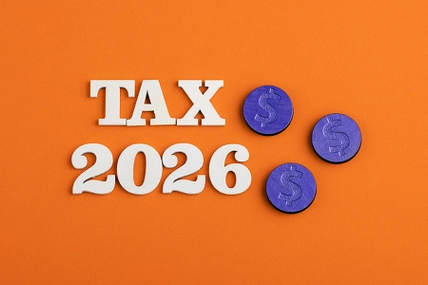Set to come into force on July 1 this year, the Law on Social Insurance (the Law) introduces significant revisions with the aim of ensuring long-term social security for the people and increasing benefits of the insured.
Set to come into force on July 1 this year, the Law on Social Insurance (the Law) introduces significant revisions with the aim of ensuring long-term social security for the people and increasing benefits of the insured.
With 141 articles arranged in 11 chapters, the Law increases subjects covered by compulsory social insurance, adds social retirement allowance, and amends provisions related to pension regime and lump-sum social insurance payouts. It also supplements measures for dealing with acts of making late payment or shirking payment of insurance premiums so as to better protect employees’ interests.
Compulsory social insurance coverage
The Law expands the scope of compulsory social insurance to new groups of participants.
Accordingly, obliged to participate in social insurance are heads of business households; and managers of enterprises, supervisors, representatives of the State’s capital amounts, representatives of enterprises’ capital amounts as defined by the Law on Enterprises; members of Boards of Directors, Chief Executive Offices, members of Boards of Supervisors or supervisors, and holders of other elected managerial titles of cooperatives and unions of cooperatives as defined by the Law on Cooperatives who are not salaried.
Social insurance will also cover employees who work on a part-time basis under labor contracts and receive a monthly salary equal to or higher than the lowest salary serving as a basis for payment of compulsory social insurance premiums, even in case employees and employers agree to use another title of employment contract which, however, still has contents showing the paid jobs and supervision by either of the contracting parties.
Social retirement allowance
The 12th Party Central Committee’s Resolution 28/NQ-TW on reform of social insurance policies sets the target of building a multi-layer social insurance system, namely social retirement allowance; fundamental social insurance, comprising compulsory social insurance and voluntary social insurance; and supplementary retirement insurance. It also says that by 2030, about 60 percent of people older than the retirement age will be entitled to pension, monthly social insurance benefits and social retirement allowance.
In light of this, the Law adds a new chapter, Chapter III, to regulate social retirement allowance.
Specifically, Vietnamese citizens aged full 75 years or older and not receiving pension or monthly social insurance allowance will be entitled to social retirement allowance. The state budget will also allocate funds for provision of social retirement allowance for Vietnamese citizens aged between full 70 years and under 75 years if they are members of poor households or households living just above the poverty line and fully meet the law-specified conditions.
Under the Law, the National Assembly Standing Committee is assigned to decide on gradual reduction of the age of citizens entitled to social retirement allowance after considering the Government’s proposal, ensuring suitability with socio-economic development conditions and the state budget’s capacity in each period.
Meanwhile, the Government will set monthly social retirement allowance levels and review and adjust them once every three years. Social retirement allowance beneficiaries will also enjoy additional support from local budgets if funds are available.
Persons currently entitled to monthly social retirement allowance may have health insurance premiums paid by the state budget in accordance with the law on health insurance. Upon their death, the organizations or individuals taking charge of their burial may have part of burial expenses paid in accordance with the law on the elderly.
Especially, the Law adds the provisions on allowance for employees who are ineligible for enjoying pension and have not yet reached the age for enjoying social retirement allowance. It states that for a Vietnamese citizen who has reached the retirement age but is neither eligible for enjoying pension (as he has paid social insurance premiums for less than 15 years) nor eligible for enjoying social retirement allowance, if he does not wish to enjoy a lump-sum social insurance allowance or to have his period of social insurance premium payment reserved, he will be entitled to a monthly allowance from his paid premiums if he so wishes.
Monthly allowance periods and levels will be determined on the basis of employees’ periods of social insurance premium payment and bases for premium payment. In the period of enjoying monthly allowance, employees will also have health insurance premiums paid by the state budget.

Pension regime
Under Article 64 of the Law, an employee will be entitled to monthly pension if he has paid social insurance premiums for full 15 years or more, instead of full 20 years or more as specified in the 2014 Law, provided he has reached the retirement age and the maximum rate is 75 percent.
For employees fully meeting the conditions for entitlement to pension, who have paid social insurance premiums under treaties to which the Socialist Republic of Vietnam is a contracting party for a certain time but their period of social insurance premium payment in Vietnam is shorter than 15 years, each year of premium payment during this period will be regarded as equal to 2.25 percent of the average salary used as a basis for social insurance premium payment.
Lump-sum social insurance allowance payouts
Employees who have stopped paying social insurance premiums will be entitled to lump-sum social insurance payouts if (i) having reached the retirement age while the period of social insurance premium payment is shorter than full 15 years, (ii) going abroad for settlement, (iii) suffering cancer, paralysis, decompensated cirrhosis, severe tuberculosis or AIDS; (iv) suffering a working capacity decrease of 81 percent or higher; or suffering extremely severe disabilities; (v) having a period of social insurance premium payment prior July 1, 2025, and, past 12 months after such period, neither being subject to compulsory social insurance nor participating in voluntary social insurance, and having paid social insurance premiums for less than 20 years; or (vi) neither being subject to compulsory social insurance nor participating in voluntary social insurance and being ineligible for entitlement to pension, for persons working in the people’s army, people’s public security or standing militia forces when demobilized or resigning from work.
For foreign workers in Vietnam who wish to receive lump-sum social insurance payouts, in addition to the conditions mentioned at items (i); (iii) and (iv) above, they must be those falling into either of the following cases: being eligible for entitlement to pension but not continuing to reside in Vietnam; or having terminated their labor contracts or having their work permits, practice certificates or practice licenses expired without being extended.
Measures to handle acts of late payment of compulsory social insurance premiums
As provided in the Law, employers committing the acts of making late payment or shirking payment of compulsory social insurance premiums will be compelled to make full payment of the social insurance premium amounts not paid due to late payment or shirking payment. At the same time, they must pay to the social insurance fund and the unemployment insurance fund an amount equal to 0.03 percent per day calculated on the unpaid social insurance and unemployment insurance amounts and based on the number of days for which they have not paid the premiums.
Additionally, violators will also be sanctioned for administrative violations for the act of making late payment, or even examined for penal liability for the act of shirking payment, of compulsory social insurance and unemployment insurance premiums. This is not to mention the measure of not considering conferment of emulation titles and application of forms of commendation.
One more handling measure is that violating employers must pay compensations to employees in case of failure to pay or fully and timely pay compulsory social insurance premiums if such failure causes damage to the lawful rights and interests of the employees.-











